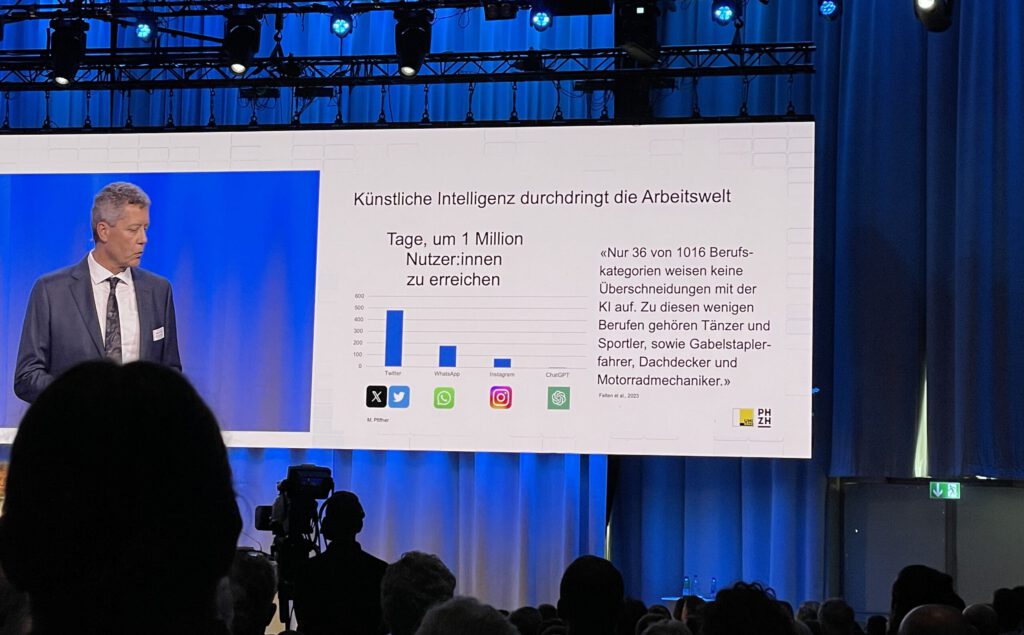
Artificial intelligence AI is permeating the world of work. However, the skills that people will need in the future lie beyond rote learning.
Switzerland is still training its young people for a world that is becoming increasingly rare.
Cantonal curricula focus on repetition and reproduction rather than understanding and change.
Critical reflection is necessary
While artificial intelligence (AI) independently writes texts, makes diagnoses, and controls machines, many classrooms still train students to recite dates, formulas, and Latin terms without error.
Of course, specialist knowledge is important, but it must be applied, interconnected, and critically reflected upon.
For years, the business community has been calling for more future-oriented skills in schools. What this means in concrete terms recently became clear at the 18th Swissmem Industry Day at the Kursaal in Bern.
4C as a vision of future
There, Manfred Pfiffner, Professor of Vocational Education at the Zurich University of Teacher Education and Professor of Didactics and Artificial Intelligence at the University of Graz, promoted a 4C model.
The scientist explained that communication, collaboration, creativity, and critical thinking are needed to prepare young people for the digitalized world of work.
While Twitter took almost 500 days to reach 1 million users, Instagram achieved this in less than 100 days.
ChatGPT only needed a few days to reach 1 million users. So developments are progressing rapidly.

Only 3 out of 1,016 occupational categories would not overlap with AI, Pfiffner quoted from the literature to the astonished audience in Bern.
Dancers, athletes, forklift drivers, roofers, and motorcycle mechanics would have little to do with AI in the future.
But all other professions would be affected by the rapid developments in the labor market.
Put simply, it is no longer relevant for a forester being able to recite the Latin names of plants and animals.
Recognizing relevant sources
In the future, we will need an environment in which learners can grow through challenges, experience meaning and self-efficacy, and accept mistakes as part of the learning process, explained the professor of education.
The core competencies for 2030 include analytical and creative thinking, technological literacy in AI and big data, as well as resilience and curiosity, he continued.
In the future, people will need to be able to distinguish between relevant and irrelevant sources and content. With so much fake news in circulation, the ability to separate truth from falsehood is vitally essential.
Switzerland must work on this with its young people.
Recognizing significance and authenticity
Future curricula will therefore increasingly focus on finding one’s way within a constantly changing environment and adapting to it.
Young people will need to learn to deal with ambiguities and to think in a networked and systematic way. In the future, it will also be increasingly important to be able to work purposefully and efficiently in different teams.
However, the decisive factor will be how knowledge is handled – sorting, evaluating, combining, and questioning it.
After all, the big question is not how many facts young people will know in the future. Rather, it is whether they understand what these facts mean and whether that data basis is even authentic.
03.08.2025/kut./ena.




